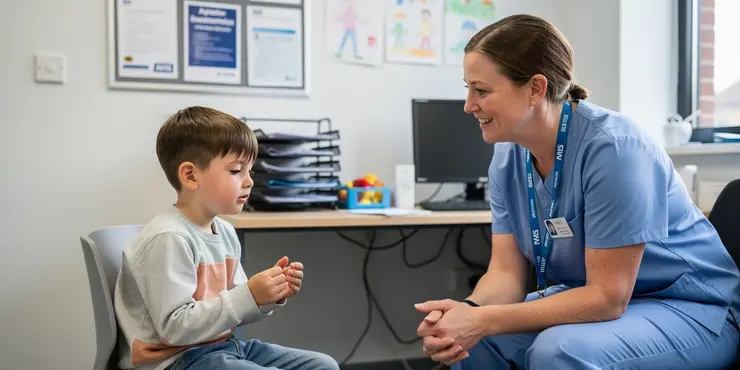Find Help
More Items From Ergsy search
-
What is Dyspraxia (DCD)?
Relevance: 100%
-

Dyspraxia Symptoms & Signs
Relevance: 100%
-

Dyspraxia Symptoms & Signs
Relevance: 100%
-
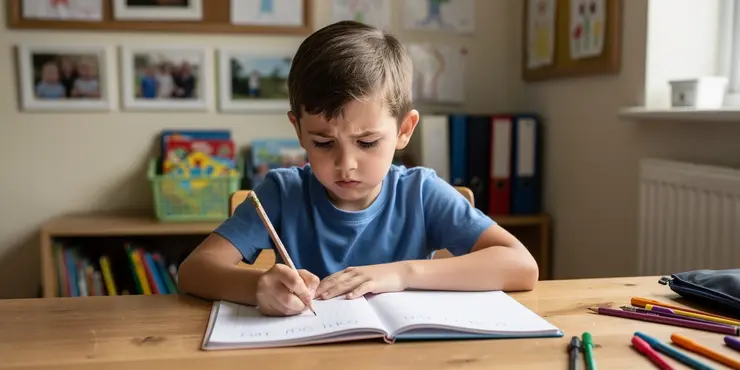
What is Dyspraxia? (Short Version)
Relevance: 97%
-
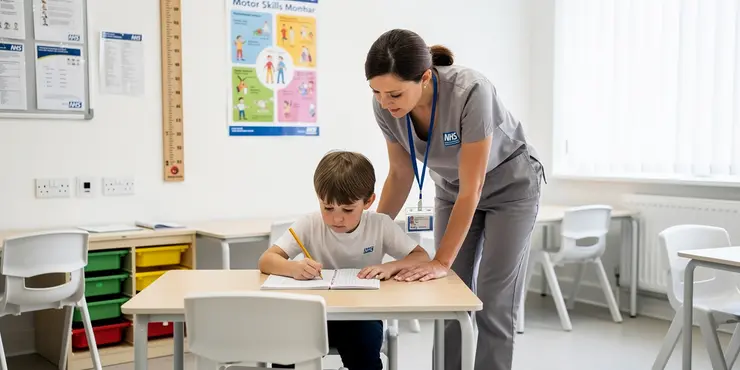
Children With Co-ordination Difficulties and Dyspraxia
Relevance: 96%
-
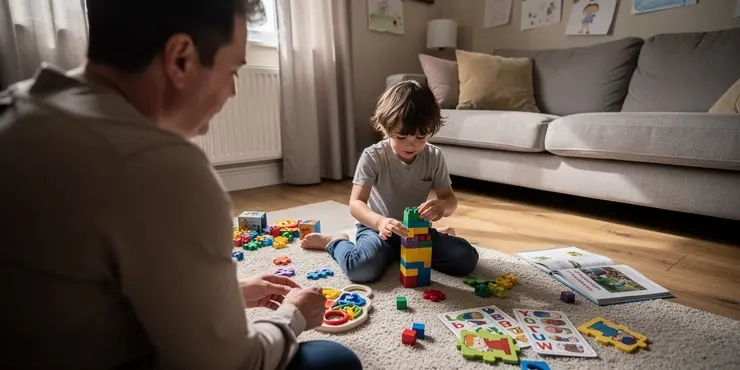
Dyspraxia Children: How to Help
Relevance: 95%
-

Dyslexia, Dyspraxia & Overlapping Learning Difficulties
Relevance: 92%
-

Childhood dyspraxia: James' story | NHS
Relevance: 92%
-
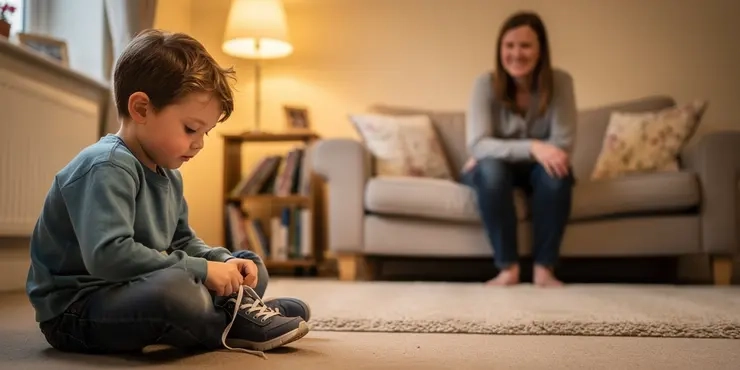
Developmental Coordination Disorder (DCD) for Children and Young People
Relevance: 23%
-
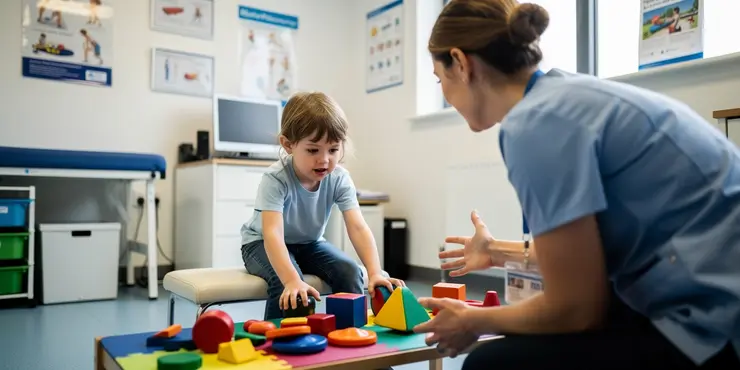
Helping Children With Co-ordination Difficulties
Relevance: 14%
What is Dyspraxia?
Understanding Dyspraxia
Dyspraxia, also known as Developmental Coordination Disorder (DCD), is a neurological condition that affects physical coordination. It's a lifelong condition that can impact a person's life in various ways, from their ability to perform everyday tasks to their academic and workplace performance. Dyspraxia is not linked to intelligence, but individuals with the condition often have trouble planning and completing motor tasks. This disorder is relatively common in the United Kingdom, with around 5% of the population affected to some degree.
Symptoms of Dyspraxia
The symptoms of dyspraxia can vary from person to person and often present differently in children than in adults. Common signs include difficulties with fine and gross motor skills, such as problems with handwriting, catching a ball, or riding a bike. Other symptoms may involve issues with balance, coordination, and spatial awareness. These challenges can lead to difficulties in academic settings, as well as social interactions, as children with dyspraxia might struggle with tasks that their peers find easy.
Diagnosis and Management
Diagnosing dyspraxia typically involves a comprehensive assessment by healthcare professionals, which may include occupational therapists, physiotherapists, and paediatricians. Early diagnosis and intervention are crucial, as they can significantly improve the quality of life for individuals with dyspraxia. Management strategies often include occupational therapy to help improve motor skills, as well as physical therapy and support in educational settings. Many schools in the UK offer specialised support for children with dyspraxia, ensuring they receive the assistance they need to succeed.
Living with Dyspraxia
While living with dyspraxia can present challenges, many individuals develop successful coping strategies over time. Supportive environments at home, school, and work are vital in helping those with the condition manage their symptoms effectively. Awareness and understanding of dyspraxia are growing in the UK, and numerous support groups and resources are available for individuals and their families. By fostering an inclusive society, we can help those with dyspraxia reach their full potential.
What is Dyspraxia?
Understanding Dyspraxia
Dyspraxia is when someone has trouble with physical coordination. This means it's harder for them to do movements like running or catching a ball. It is a condition that lasts for life. Dyspraxia does not affect how smart someone is. People with dyspraxia often find planning and doing physical activities difficult. In the UK, about 5 out of every 100 people have dyspraxia.
Symptoms of Dyspraxia
Dyspraxia symptoms can be different for each person. Kids and adults might show different signs. Common problems include difficulty with small and big movements. For example, handwriting might be hard, or playing sports might be a struggle. People with dyspraxia might also have trouble keeping their balance. This can make school and making friends harder.
Diagnosis and Management
Doctors and therapists can check if someone has dyspraxia. This might include seeing how they move and do tasks. It is important to find out early so they can be helped in the best way. Treatments can include working with therapists to improve movement skills. Schools often help kids with dyspraxia by giving them extra support to do well.
Living with Dyspraxia
People with dyspraxia can learn ways to manage their challenges. It helps if home, school, and work understand dyspraxia and offer support. There are many groups and resources that can help people with dyspraxia and their families in the UK. Understanding and acceptance can help people with dyspraxia achieve their goals.
Frequently Asked Questions
What is Dyspraxia?
Dyspraxia, also known as Developmental Coordination Disorder (DCD), is a neurological condition that affects physical coordination. It can affect movement, coordination, and motor skills.
Who is affected by Dyspraxia?
Dyspraxia can affect people of all ages, but it is usually noticed in early childhood. It is more commonly diagnosed in boys than girls.
What are the symptoms of Dyspraxia?
Symptoms can include poor coordination, clumsiness, difficulty with tasks requiring fine motor skills, and problems with balance and spatial awareness.
How is Dyspraxia diagnosed?
Diagnosis is typically made by a specialist, such as a paediatrician, neurologist, or occupational therapist, through a series of physical and behavioural assessments.
Can Dyspraxia be cured?
There is no cure for Dyspraxia, but therapies and interventions can help manage symptoms and improve coordination and daily functioning.
What support is available for Dyspraxia in the UK?
Support can include occupational therapy, physiotherapy, speech and language therapy, and educational support. Charities like the Dyspraxia Foundation also offer resources and support.
Is Dyspraxia related to intelligence?
No, Dyspraxia is not related to intelligence. Individuals with Dyspraxia can have a range of intellectual abilities.
Can Dyspraxia affect learning?
Yes, Dyspraxia can impact learning, particularly tasks involving coordination, writing, and organisation. Children may need additional support in educational settings.
How common is Dyspraxia?
Dyspraxia affects about 5-6% of children in the UK, with around 2% severely affected.
What causes Dyspraxia?
The exact cause of Dyspraxia is not known, but it is thought to be related to the way the brain processes information, affecting coordination and movement.
How does Dyspraxia affect daily life?
Dyspraxia can make everyday tasks like dressing, writing, and using tools more challenging. It can also affect social skills and emotional well-being.
Can adults have Dyspraxia?
Yes, Dyspraxia continues into adulthood. Adults with Dyspraxia may find it affects their job performance, driving, and other daily activities.
Is Dyspraxia the same as Autism?
No, Dyspraxia and Autism are distinct conditions, but they can co-exist. While Autism primarily affects social interaction and communication, Dyspraxia primarily affects motor coordination.
What therapies are beneficial for Dyspraxia?
Therapies that can be beneficial for Dyspraxia include occupational therapy to improve coordination, physiotherapy to enhance physical strength and balance, and speech therapy if speech issues are present.
Can children with Dyspraxia attend mainstream schools?
Yes, children with Dyspraxia can attend mainstream schools, but they may require extra support and accommodations to help them manage their coordination difficulties and succeed academically.
What is Dyspraxia?
Dyspraxia is a condition that makes it hard for some people to move their bodies in the way they want. It can make things like running, jumping, or writing a bit tricky.
People with dyspraxia might need extra help to learn these skills. Using things like lists, reminders, and practice can make things easier.
Dyspraxia is a condition that makes it hard to move the body easily. It is also called DCD. It can make it hard to walk, run, and do things with your hands.
Who does Dyspraxia affect?
Dyspraxia is a condition that can make it hard for some people to move and do things. It can affect both children and adults.
People with Dyspraxia might find it difficult to write, draw, or play sports. They might also find it hard to balance or learn new skills.
To help people with Dyspraxia, you can use tools like special pencils that are easier to hold or practice with a coach to get better at sports.
Dyspraxia can affect people of all ages. But, people usually notice it when children are young. More boys than girls are told they have dyspraxia.
What are the signs of Dyspraxia?
Dyspraxia is a condition that makes it hard for people to move their bodies easily.
Here are some common signs:
- Finding it hard to balance or walk smoothly.
- Having trouble with tasks like writing, drawing, or using scissors.
- Getting tired quickly during physical activities.
- Being clumsy or bumping into things.
- Speaking more slowly or unclearly.
If you think you or someone else might have Dyspraxia, it is good to talk to a doctor.
Some tools that can help include:
- Taking breaks to rest during activities.
- Using special grips for pens or pencils.
- Having a calm and quiet place to do school work.
People might have trouble moving their bodies in the right way. They can be clumsy and find it hard to do things that need careful hand movements. They might also have problems keeping their balance or knowing where things are around them.
How do doctors find out if someone has Dyspraxia?
Doctors can find out if someone has Dyspraxia by doing special tests. Here is how they do it:
- Talk to you: The doctor will ask questions about how you move and do things every day.
- Check your body: The doctor will look at how you move and use your muscles.
- Use special tools: The doctor might use pictures or games to see how you do different tasks.
If you are worried about Dyspraxia, here are some things that can help:
- Talk to someone: Tell a parent, teacher, or doctor about any problems you have.
- Practice: Try doing tasks little by little. This can help you get better at them.
- Use tools: Special grips for pencils or games that help hand skills can be useful.
A doctor who knows a lot about the body and mind will usually find out what is wrong. This can be a children's doctor, a brain doctor, or someone who helps with how you do things every day. They will do some tests to check how your body works and how you behave.
Can Dyspraxia be cured?
Dyspraxia is a condition that affects how you move and do things. There is no cure for dyspraxia. But people with dyspraxia can get better with practice and support.
Here are some ways to help:
- Work with a special teacher or therapist.
- Practice exercises that help with balance and coordination.
- Use tools like writing grips or larger-sized items to make tasks easier.
- Break tasks into smaller steps.
With help and practice, people with dyspraxia can learn new skills and get better at everyday tasks.
Dyspraxia cannot be completely fixed, but there are ways to help. Therapies and special activities can make symptoms better and help with moving around and doing daily tasks.
What Help Can You Get for Dyspraxia in the UK?
If you have dyspraxia, there are ways to get help. You can see a doctor or specialist. They might give you exercises to do. You can also ask your teacher at school for help.
There are special tools that can help you, like easy-grip pens or apps for learning. You can join a support group to meet others with dyspraxia. Together, you can share tips and talk about how you feel.
It is important to ask for help if you need it. There are people and tools to make things easier for you.
Help can come from different places. You might get help from an occupational therapist, a physiotherapist, or a speech and language therapist. Schools can also give help to learn better. There are charities that can help too. One charity is the Dyspraxia Foundation. They have useful things and support for you.
Does Dyspraxia affect how smart someone is?
No, Dyspraxia does not affect how smart someone is. People with Dyspraxia can be smart in different ways.
Can Dyspraxia make learning harder?
Dyspraxia is when someone finds it hard to move or do things with their body.
People with Dyspraxia might find some school things tricky. They might have trouble with writing, drawing, or sports.
But with help, they can do well! Teachers and parents can use special tools to make learning easier. Like using a computer for writing instead of a pencil.
It's important to be patient and practice a lot.
Yes, Dyspraxia can make learning harder. It can affect how you move, write, and stay organised. Children might need extra help at school.
How many people have Dyspraxia?
Dyspraxia is when someone finds it hard to move their body smoothly. It can make things like writing, running, or playing tricky.
Lots of people have Dyspraxia. About 5 or 6 out of every 100 people might have it.
If you think you or someone you know has Dyspraxia, it's a good idea to talk to a doctor or teacher. They can help make things easier.
- Use lists to remember tasks.
- Take breaks when working on something hard.
- Practice activities slowly to get better over time.
In the UK, about 5 to 6 out of every 100 children have dyspraxia. Around 2 out of 100 children have it very badly.
What makes Dyspraxia happen?
We do not know exactly what causes Dyspraxia. But we think it is how the brain works with information. This can make moving and coordinating hard.
What is Dyspraxia and how does it affect daily life?
Dyspraxia is a condition that makes it hard to do some everyday things. It can affect how you move your body.
Things that might be hard include:
- Catching a ball
- Writing neatly
- Getting dressed
These tasks might take more time and effort.
Helpful tips:
- Practice these activities a little bit every day.
- Use special tools like wide-grip pens to make writing easier.
- Ask for help when you need it.
Dyspraxia can make it hard to do things like getting dressed, writing, and using tools. It can also make it hard to make friends and feel good.
Can grown-ups have Dyspraxia?
Yes, they can.
Dyspraxia is a condition that affects movement and coordination.
Grown-ups might find it hard to do tasks like:
- writing
- tying shoelaces
- riding a bike
If you find these things hard, here are some ways to help:
- Practice tasks step by step.
- Use tools like a laptop for writing.
- Ask for help when you need it.
It is okay to find things hard. Many people have Dyspraxia.
Yes, Dyspraxia still happens when people grow up. Adults with Dyspraxia might have trouble at work, driving, and doing everyday things.
Are Dyspraxia and Autism the Same?
Dyspraxia and Autism are not the same. They are two different conditions.
Dyspraxia affects how people move and coordinate their body. It can make it hard to do things like run, jump, or write.
Autism affects how people talk, behave, and interact with others. It can make it hard to understand feelings or make friends.
If you have questions or need help, you can ask a teacher or a parent. You can also use picture cards or apps to help you learn more.
No, Dyspraxia and Autism are different. But, a person can have both. Autism mostly affects talking and being with others. Dyspraxia mostly affects how you move your body.
What therapies can help people with Dyspraxia?
Dyspraxia makes it hard to move and do things with your body. Some therapies can help. These are:
- Occupational Therapy: This therapy helps you learn daily tasks, like getting dressed.
- Physical Therapy: This helps you get stronger and move better.
- Speech Therapy: This helps if you have trouble talking.
Using tools like timers and step-by-step guides can help with learning. Always ask for help if you need it.
If someone has Dyspraxia, some treatments can help them.
Occupational therapy can help them get better at moving and using their body.
Physiotherapy can help them get stronger and balance better.
If they have trouble talking, speech therapy can help them talk better.
Using apps or tools that help with remembering steps can also be helpful.
Can kids with Dyspraxia go to regular schools?
Yes, kids with Dyspraxia can go to regular schools. Schools can help them learn.
Here are some tools and tips to help:
- Give clear and simple instructions.
- Use pictures to explain things.
- Let kids take breaks when they need.
- Give extra time for tasks.
Yes, children with Dyspraxia can go to regular schools. They might need extra help to manage their coordination problems and do well in school.
Useful Links
This website offers general information and is not a substitute for professional advice.
Always seek guidance from qualified professionals.
If you have any medical concerns or need urgent help, contact a healthcare professional or emergency services immediately.
Some of this content was generated with AI assistance. We’ve done our best to keep it accurate, helpful, and human-friendly.
- Ergsy carfully checks the information in the videos we provide here.
- Videos shown by Youtube after a video has completed, have NOT been reviewed by ERGSY.
- To view, click the arrow in centre of video.
- Most of the videos you find here will have subtitles and/or closed captions available.
- You may need to turn these on, and choose your preferred language.
- Go to the video you'd like to watch.
- If closed captions (CC) are available, settings will be visible on the bottom right of the video player.
- To turn on Captions, click settings .
- To turn off Captions, click settings again.
More Items From Ergsy search
-
What is Dyspraxia (DCD)?
Relevance: 100%
-

Dyspraxia Symptoms & Signs
Relevance: 100%
-

Dyspraxia Symptoms & Signs
Relevance: 100%
-

What is Dyspraxia? (Short Version)
Relevance: 97%
-

Children With Co-ordination Difficulties and Dyspraxia
Relevance: 96%
-

Dyspraxia Children: How to Help
Relevance: 95%
-

Dyslexia, Dyspraxia & Overlapping Learning Difficulties
Relevance: 92%
-

Childhood dyspraxia: James' story | NHS
Relevance: 92%
-

Developmental Coordination Disorder (DCD) for Children and Young People
Relevance: 23%
-

Helping Children With Co-ordination Difficulties
Relevance: 14%


